|
LISTEN TO THIS THE AFRICANA VOICE ARTICLE NOW
Getting your Trinity Audio player ready...
|
It’s sunset for the 8-4-4 education system.
Thursday, Nov 23, 2023, the final candidates to sit the Kenya Certificate of Primary Education (KCPE) completed the test, ending what critics derided as the “zero-system” of education, extrapolating from calculating 8 minus 4 and minus 4 equals 0 and marking a momentous transition in Kenya’s educational landscape.
At Donholm Primary School in Nairobi, the mood on November 1, 2023, was familiar to many Kenyans who sat the dreaded KCPE, the first benchmark of academic success in the country. The constant chatter that denoted the final assembly as the teachers bade their students goodbye was a telltale of the young ones’ excitement.
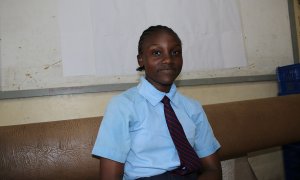
Amid the emotional hugs between friends and exchange of contact information between classmates, Perpetua Ashley, who had just finished her KCPE exams, was ambivalent about her newly accomplished feat – a primary school graduate.
As it dawned on her that it was the last time she would leave her now alma mater as a primary school student, Ashley confessed that being the final class ever to sit the KCPE exams in Kenyan history made them feel special.
“The exams were fair, we are expecting to pass and we really thank our teachers since they have delivered the best,” Ashley said. “Primary school has been some of the best years of my life. I will miss these moments.”
She spoke of her hopes to attain exemplary performance, secure a slot in the Kenya High School, and pursue a pediatrics career. However, she knew that the exam results may sometimes differ from what one hoped.
“When the results come, the reality is that some of us will pass, and some of us will fail. However, you should not be discouraged since a dismal KCPE performance does not mean that one’s future is doomed,” Ashley offered.
Her former classmate, Emmanuel Odhiambo, also shared his experience.
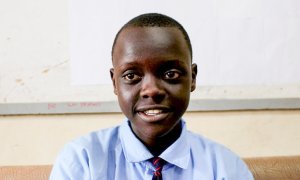
“I never thought I would finally finish class eight. It seemed like a dream. We were counting down years, months, and finally days.” Odhiambo, who hopes to join Kakamega High School and later become a neurosurgeon, said.
Odhiambo said although they had finished their primary education, their academic journey was just halfway done, as they still had eight more years to go.
He said this realization should push his fellow 2023 candidates to work even harder when they join secondary schools next year.
A few meters from the assembly ground, Christine Wandalo, who was visibly proud, shook hands and hugged her students. Although these year-end goodbyes are something she has done for years on end, she confesses that this year has been the most remarkable in her thirty-four-year career.
It was the end of an era as she bade goodbye to the last candidates to sit the legendary KCPE national exams.
With a wave of nostalgia, Wandalo praised the onset years of the 8-4-4 system as the best curriculum she had ever seen. She said that although the curriculum was tedious for the teachers involved, it was one of the best for students since learners had many practical subjects to learn from.
“Back in the day, teaching students Agriculture involved taking them to the farms and sometimes teaching them pottery with actual mud, instead of using plasticine and play-doh,” she recounted. “Music classes were also very entertaining, refreshing, and informative. We also taught Home Science,” she said excitedly.
Wandalo beamed with pride as she narrated that having lived through three Kenyan education curricula was a privilege. She explained that her love for teaching was so profound that the Kenya Institute of Curriculum Development (KICD) engaged her as a teacher trainer, a curriculum designer, and an author of mathematical textbooks.
“I was among the last lot of Kenyan students to sit the former curriculum of the Certificate of Primary Education (CPE) in 1979,” Wandalo said. “I have played a huge part in not just teaching, but also developing the 8-4-4 curriculum. Today, I also teach mathematics in the CBC classes.”
Now approaching retirement, Wandalo said she is a happy and accomplished teacher. “Teaching has allowed me not just to be an author but also to travel around the country, meet new people, and get new experiences,” she said.
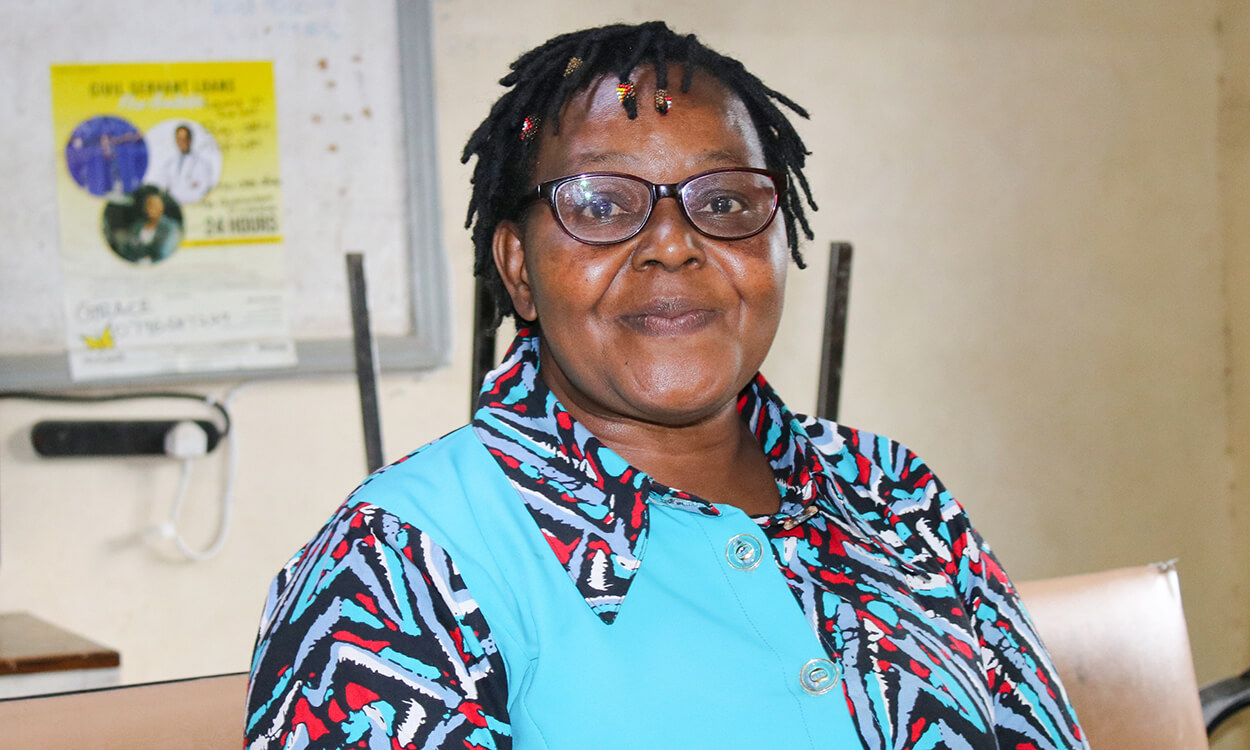
Wandalo argued that despite its goodwill, CBC’s roll-out needed more preparation. She noted that many schools in the country still need mathematics teachers. She urged the government to focus on equipping schools with trained teachers who will handle the CBC classes for the curriculum to be a success.
She reiterated that new graduate teachers coming straight from university may have difficulty adapting to the changed curriculum and may need the help of those who have been around much longer.
“Education stakeholders need to engage the teachers who have been longer in the field to pass down important methodology and prepare the incoming teachers on how to handle teaching,” Wandalo said.
Johnson Nzioka, the national chairman of Kenya Primary Schools Headteachers Association (KEPSHA) and headteacher at Donholm Primary School, has also been a teacher for the last 35 years.
“I started as a class teacher in 1985, and I have grown with 8-4-4 till date as I see its conclusion. And I am seeing the incoming CBC curriculum, which I am enjoying also,” Nzioka said.

Nzioka disclosed that his school hosted 499 students who sat their KCPE in 2023.
Speaking of the outgoing system, Nzioka expressed relief that 8-4-4 is ending.
“KCPE, in general, was a very stressful exam both for the teachers and the learners. This is like a do-or-die exam,” Nzioka said.
He noted that the demand from parents and teachers that students should pass their exams put the students under immense pressure. However, unlike the KCPE, he said, KPSEA candidates enjoy their final exams like everyday assessments.
When KCPE was first introduced, Nzioka said it brought more examination subjects than its predecessor (CPE). That meant a bigger load for learners and less time for physical activities.
The assessment framework also created the mindset that they were doomed unless a student excelled in their KCPE—an unhealthy mindset for primary school-age students.
However, he noted that the system started as a promising curriculum akin to the current CBC. Subjects like arts and crafts and music made the curriculum enjoyable for the students.
A former art teacher, he attested that his learners at that time thrived in practical skills and would look forward to his classes.
Nzioka believes that the system started failing when the key educational stakeholders decided to rid the curriculum of practical subjects.
“That was the beginning of driving 8-4-4 in the wrong direction. I am praying that will not happen to CBC. It has now brought on board the areas that 8-4-4 had at its onset,” he said.
Nzioka also noted that one of the most negative practices in the KCPE assessments was the national ranking of schools. A practice, he said, that pushed teachers, parents, and students to use dubious methods to attain high performance.
“Although the Ministry of Education ceased the official ranking, the Kenyan media is still hung up on the habit since they go looking for students and schools to create a performance list of their own,” Nzioka said.
He expressed his joy that KPSEA is not keen on performance ranking, saying, “The issue of ranking should never come back. It should leave together with 8-4-4.”
Even as schools say goodbye to the old curriculum, the headteacher insists that the coursebooks should not be wasted as they can serve as supplementary books for those who want to read widely.
As a product of the outgoing system herself, Joselyne Gakii fondly recounted her days as a primary school student in Meru when she sat her KCPE in 1990.
“I enjoyed the 8-4-4 because of the learning I underwent. I was in the Christian Union and a Chakacha dancer. It offered a lot of intermingling with other schools. We often had chorals, poems, and other outdoor activities that made us all-rounded,” Gakii recalled.
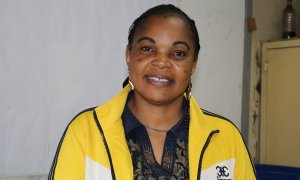
Also, a teacher, Gakii, confesses that while she is not entirely happy that this was the last KCPE class, she is ready to accept and embrace the ongoing CBC system.
She lauded KCPE for its simplicity since it offered students multiple choice exams and the CBC curriculum for its activity-centered system that ignites a yearning for studies in young minds.
A look back at the 8-4-4 legacy
In 1981, President Daniel Moi established a presidential task force to reimagine Kenya’s education system. The task force recommended a more science- and math-focused curriculum, emphasizing practical skills and personal development.
In the 8-4-4 education system, students spend 8 years in primary school and 4 years in secondary and university. It replaced the 7-6-3 system, which required seven years of primary school, 4 years of mandatory secondary school, 2 years of optional high school, and 3 years in the university for those who made the grade. The 7-6-3 system was introduced in 1963 to accelerate education for Africans denied opportunities during colonial rule.
The new system aimed to produce well-rounded individuals capable of self-reliance and contributing to society’s well-being without a university degree.
The 8-4-4 system introduced several groundbreaking changes, including vocational training in arts and crafts and home science, traditionally considered feminine pursuits. This move challenged gender stereotypes and equipped students with diverse skills for self-sufficiency.
For 42 years, the 8-4-4 system shaped the lives of over 26 million Kenyans, leaving an indelible mark on the nation’s educational landscape. However, the transition to the 8-4-4 system was challenging.
Introducing Kiswahili as a compulsory subject presented difficulties for students used to learning in their mother tongue. The reduced duration of secondary school and an extended university stay also caused initial confusion.
The 7-6-3 system faced a crisis in 1963 when exam leakage resulted in more passing students than available secondary school slots. This led to the establishment of self-help harambee secondary schools, later recognized as formal institutions.
Despite widespread criticism of 8-4-4 for its focus on exams, former KNUT chief Wilson Sossion hailed the system as the best Kenya ever had.
“The 8-4-4 was the most well-thought-out revolutionary curriculum in Africa that was going to be a panacea to lead Africa to industrialization but it was systematically sabotaged by external forces,” Sossion said. “The strong knowledge framework is what has made the 8-4-4 what it is and made its graduates the most competitive in the world.”
Nonetheless, the 8-4-4 system, once lauded and criticized in equal measure, bows out gracefully as the KCPE national examination fades into history, signaling the end of an era in Kenyan primary education.
And Thursday, Nov 23, amidst a palpable buzz of excitement, Education Cabinet Secretary Ezekiel Machogu stepped onto the stage at Mitihani House in Nairobi, poised to unveil the nation’s last KCPE examination results.
As the nation waited in anticipation, Machogu announced that Michael Warutere, a student from Riara Springs Primary in Imara Daima, Nairobi, had emerged as the top candidate, achieving 428 marks out of 500. The results painted a diverse picture of academic achievement, with only 8,523 candidates scoring above 400 marks, representing 0.60% of the total examinees.
Meanwhile, 24.29% of candidates scored between 300 and 399 marks, while 48.49% fell within the 200 to 299 mark bracket. On the other end of the spectrum, 27.11% of candidates scored between 100 and 199 marks, while 0.15% scored between 0 and 99.
In a significant development, Kenya National Examination Council (KNEC) CEO David Njeng’ere announced hope for Standard Eight learners who had registered for the 2023 KCPE exams but could not sit due to unforeseen circumstances.
These individuals would be allowed to take special exams within 30 days, ensuring no student was left behind.
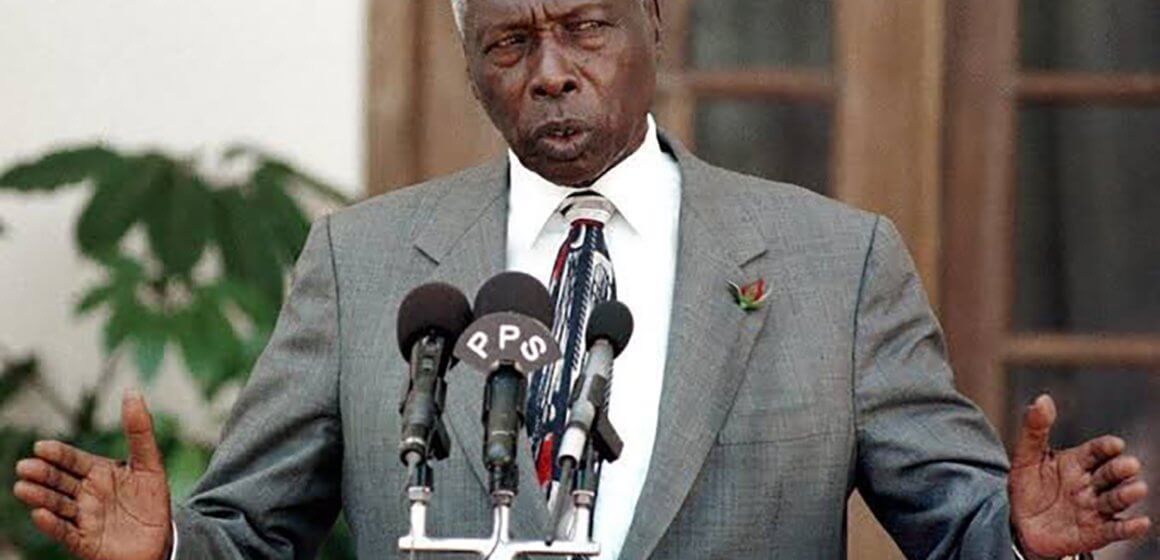







































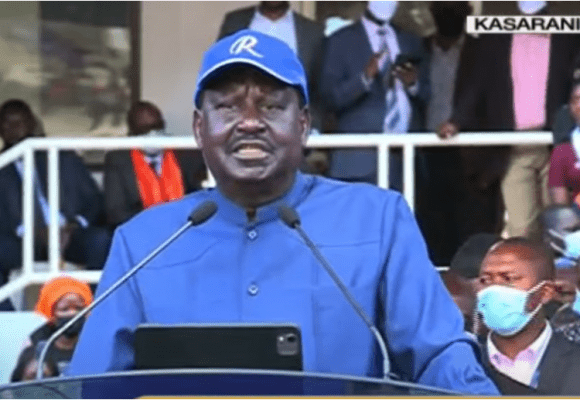






LEAVE A COMMENT
You must be logged in to post a comment.